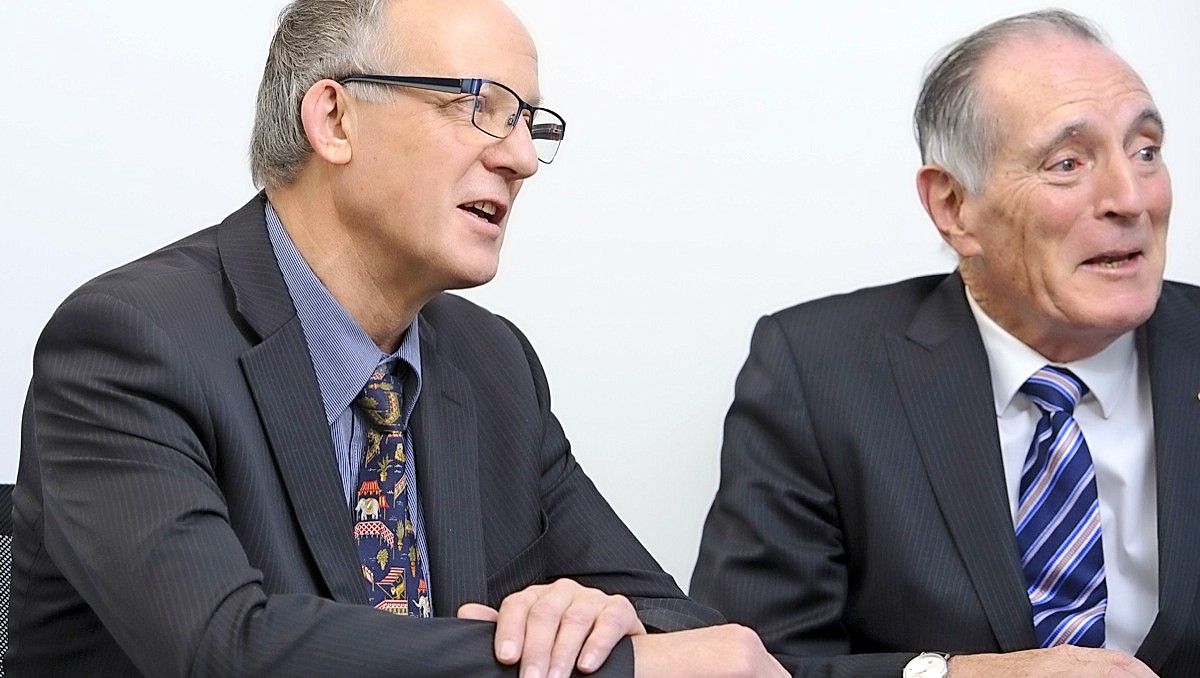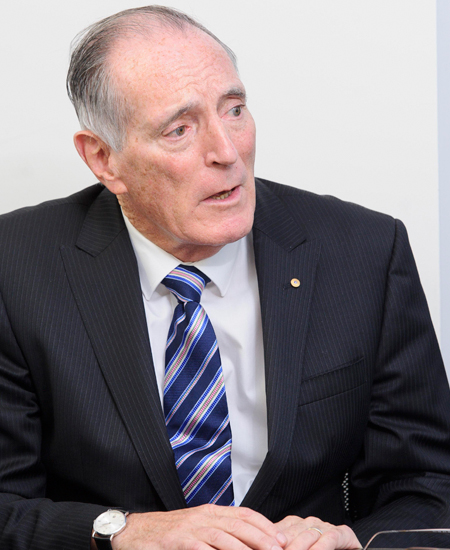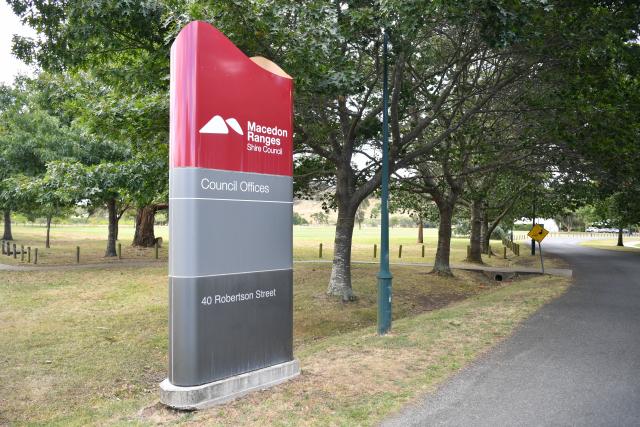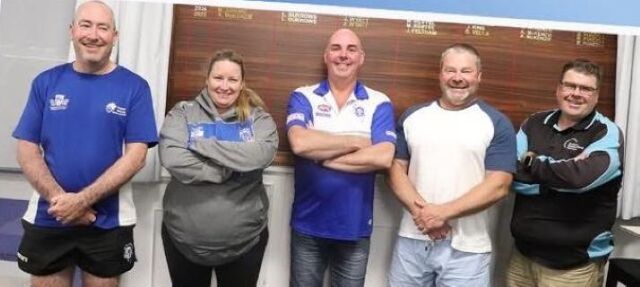Sunbury auditors Frank Vincent and John Watson talk to Star Weekly in detail about Sunbury’s planned split from Hume council.
Star Weekly: We’re now several months into this review of the transition process. One of the concerns in the past has been that it’s been difficult for the ordinary person to get to the bottom of all the various reports. Do you feel the information sheets you have been releasing go some way to putting it all on the table?
Frank Vincent: So far, this process has been about gathering the information that needed to be taken into account, to assess criticisms and then develop some methodology for communicating what they are to the broader community. It’s been an information gathering and dissemination process, so that the discussions then must inevitably take place focused on realities and not clouded by what might be the feelings or emotional forces one way or the other. That’s the way we’ve been going about it. We delayed the process of consultation until we put out the information sheets and put out advertisements and things like that in order to get the message out there. None of the material in it is in fact our material.
John Watson: This is a very important point. This project has been studied and has been in so many reports going back many, many years. All we are doing is putting out information that has come from all those sources. It is not our information. It’s to inform the community.
FV: I know we have to make recommendations, but it’s not even a question about what we would personally choose to do. That’s irrelevant, because the decisions will not be made by us, they will be made by the communities and they will be made by the government. But really those decisions have to be informed decisions and they have to be based on more than emotional desires one way or the other.
SW: With regards to the financial modelling, one of the criticisms has been that the information provided to past reports had not been verified. What’s your response?
FV: The most that we can do is accept the professionalism of the organisations which compiled those reports. You’ve got organisations like KPMG, CT Management, Deloitte. These are not small firms.
JW: The very basis for those firms and the history of their success is that they act very professionally. Their reputation depends on it. Going back to what we said before, our role – if the information has been there and has been buried in or hard to find in those reports – is to bring it up to a place where it is made easily available to the community.
SW: It’s been said that this review should have been done from scratch …
FV: That’s just not a practical proposition. There’s are all kinds of things about these assessments. There are different assumptions being made, different calculations and so on. I’m not aware of an absolute fool-proof method of doing these sorts of things. They all involve a measure of prediction, a measure of speculation of the way things are going to develop. And so those assessments are not written in stone, but they do provide a broad framework within we operate. We do that in relation to federal budgets and home accounts, it’s no different. Ultimately you are dependent to a substantial extent on the professional bodies on whom you seek expert opinions.

SW: With the analysis of the rates impact, it doesn’t include money from the Racecourse Road development and, as pointed out in your information sheet, it doesn’t include the state government’s proposal to cap council rates. Even then, is the effect on rates likely to be significant, based on the information that’s before you?
JW: The numbers are what they are. They’re based upon information provided by other bodies. Racecourse Road is interesting. It is an asset and a general approach to that in local government is that if it is realised, you would expect it would be used for non-recurrent purposes. So in that sense it doesn’t have too much of a direct impact on rating. You might borrow, you might sell an asset, but you’d expect to use that for capital type expenses.
SW: Talking about services in general, what are your thoughts? There’s suggestions that major cuts might have to be made or outsourcing will be required. Is it just a case that a Sunbury council would have to cut its cloth like lots of other councils?
JW: KPMG made a conclusion regarding service that is currently being provided and even CT Management made some comment if this was to occur and what this would mean in terms of rate impact. But we’re not expressing a view on that. It’s simply the information that’s there from other sources.
FV: What we’re really trying to do is bring people’s attention to the potential consequences. We can’t guarantee that any one of those impacts is going to occur. But if you are going to make a decision on whether something should proceed then it is vitally important that the people making that decision are conscious of the potential gains and losses. They can make an assessment on the basis of that as to whether it is a good idea.
JW: With ratecapping, none of us know what the model will be that will be introduced. The essential services commissioner is working currently to advise the government. But if there is rate capping, all councils will have to deal with that. One thing we can be sure of is if there is a reduction in rates, they will have to find alternative sources, which is much easier to say than to do, or you have to, to use your term, cut your cloth a bit.
FV: I must say on a personal level I don’t see any of that occurring terribly quickly. There are so many matters to resolve.
SW: With regards to the poll, when separation was put off for another year Local Government Minister Natalie Hutchins mentioned a compulsory vote could be one of the things recommended by you as auditors. Is that something that is still on the table?
JW: Well, she didn’t rule it out. That will be for the minister and the government to decide in due course.
FV: There are different decisions to be made in relation to this. Recommendations we make may in fact consist of a whole range of options. Whether or not those options are chosen would depend on the way this whole process fits into frameworks with government policy and so on. Now, if one view that was adopted was that there were deficiencies in the way that the [2013] poll was conducted, or perhaps inadequate information was provided to people, one appropriate response to that might be provide them with that information and let them make a decision. That wouldn’t be at all an inappropriate response to it. It may not be the response that is chosen, but that could well occur.
SW: Mr Watson, in regards to your position, it’s been suggested that being a former Hume CEO and a Sunbury resident might put you in a tough or possibly biased position. What’s your response to that?
JW: I’m very much aware this matter has been raised in parliament. It’s been raised in the context of a question to the minister so quite properly it’s right that the minister should respond to that. Putting that aside, I would say we are approaching this in a professional manner. The information is not ours, we are simply making the information readily available to the community. They will make comment to us and, in due course, we will make a recommendation to the minister.
FV: Our report will stand or fall on the content that’s there. I’m experienced in this in the sense that as a judge you sit there and listen to cases. It was impossible not to form your own impression of things. The one thing you did learn was to make certain that your impressions were not communicated or did not become the influential basis of your decision. Ultimately, the concerns that are raised will have to be assessed, and the merit attached to them, by others. It’s not a question of us at all.
JW: We are not here to make decisions.
SW: With regards to population growth, another side of the debate is that a Sunbury council would have to rely on continual growth to maintain viability. With your recent information sheets outlining that growth has been less than expected over some time, is that a cause for concern even with various precinct structure plans on the way?
JW: All we have is say that the history of population projections have not actually materialised. If some of these predictions had occurred, Sunbury would be twice the size it is today. That hasn’t happened. There are fresh projections by the current authorities which suggest Sunbury will grow in a certain fashion over coming years. History will say that doesn’t always happen. We’re not saying it won’t, it may be exceeded, but there’s a question.
FV: That’s the same with all of these projections. The notions of rate increases, the extent of rate increases, the nature of the services that will be delivered. They may drastically change over the years. They have in the past and they will in the future. But you can’t make a sensible decision without being aware of these potential changes.

SW: This week you finally start meeting with members of the public. That’s a pretty important step in this process.
JW: When we sat down to look at this we mapped out a process. Firstly we had to get across all the information that was available. Then we had to extract from it the information that we believed the community should have access to in a readable fashion and get that out there. Then people informed by that, whether they agree with it or not, we will talk to those who want to talk to us, and then, again, from an informed community get submissions.
FV: They may, as we’ve asked, have other matters that should be considered. They may have questions that haven’t been raised so far, they may say ‘well look, these are the wrong questions’. That’s the process, but the endeavour has been to try and focus the discussion on the basis of more information than appears to have been easily available in the past.
SW: For people who are not familiar with that process, where do we go from here? You will take submissions from the public and then make recommendations to the minister by the end of August?
JW: We’ve been asked to report to the minister by August 31.
FV: And we will do that. We won’t be wanting to extend that time in any way it’s just important that we spell out what the various issues are. Then of course there’s a whole political process in regards to what follows after that.
SW: Finally, what’s your message to the people of Sunbury and Hume as you take things to the next stage?
FV: What we really want them to do is to engage with issues that have been raised. Because ultimately there will need to be an informed discussion and informed decision making. That’s what it’s about. One possible scenario, for instance, could be that there was such a strong desire for a separate municipality that people were prepared to pay a substantial increase in their rates to have it. If that’s the view, then it would not be for someone like myself to say you should not be given that opportunity.
JW: I fully agree with that. If that is the view of the community and the decision of the government, then so be it.
FV: It’s terribly important to bear in mind that this decision, whatever it may be, will have significance not only to the people currently residing in Sunbury or in the Hume area generally, but to those very people who are expected to come in under the growth projections.




















